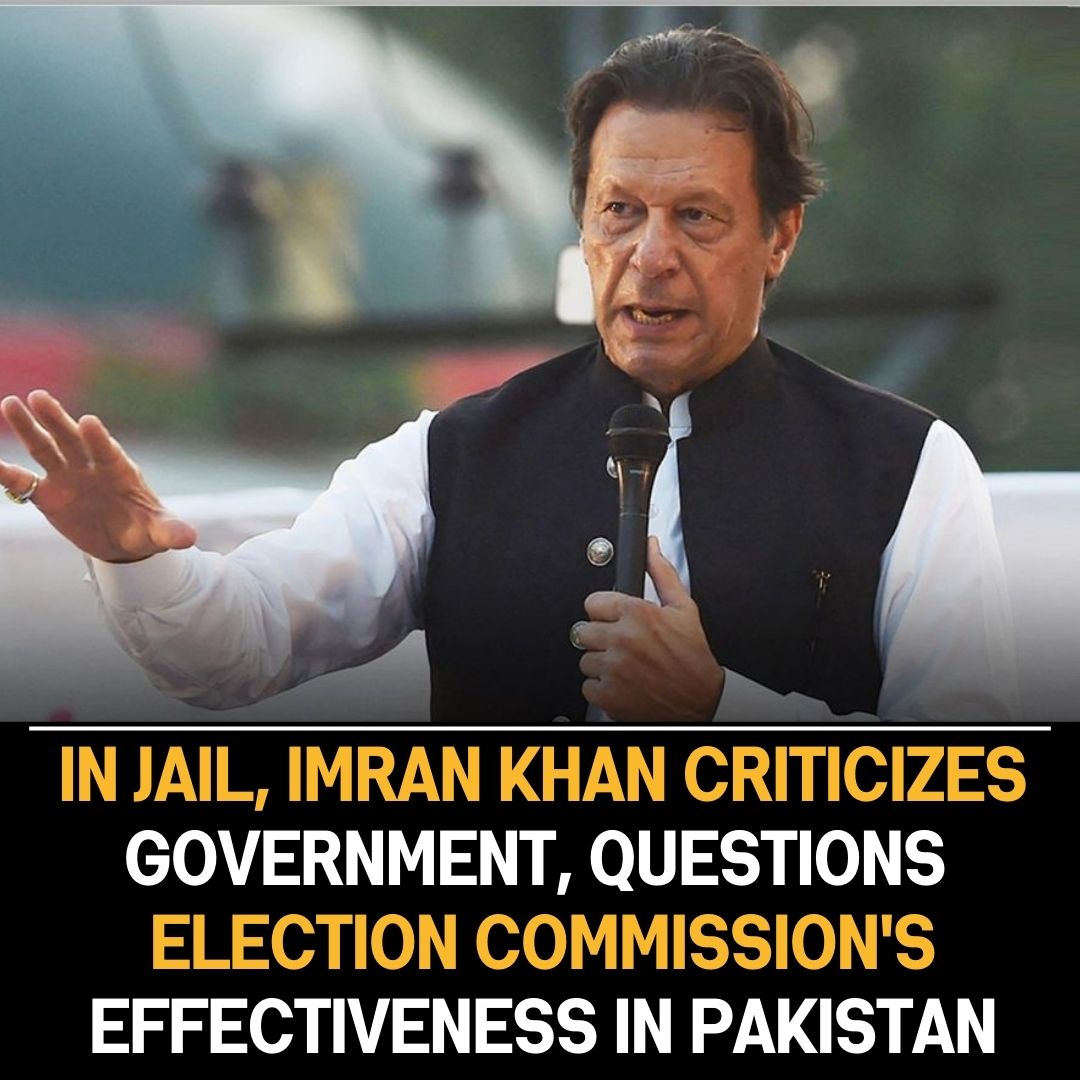Imran Khan, the former Prime Minister of Pakistan who is currently incarcerated, is actively advocating for a resolution through compromise amidst the political turmoil. Expressing his concerns, Khan has criticized the caretaker government and raised questions about the effectiveness of the Election Commission in the country.
Facing legal challenges, Imran Khan finds himself in a pivotal moment, and rather than adopting a confrontational stance, he is calling for a resolution through compromise. This signals a departure from the usual political rhetoric, emphasizing the importance of dialogue and negotiation in addressing the current political impasse.
Khan’s critique extends to the caretaker government, which he perceives as falling short in its responsibilities. In his statements, he highlights perceived inadequacies and raises concerns about the government’s ability to address the nation’s needs effectively during this transitional period. The former Prime Minister’s emphasis on constructive criticism reflects a commitment to improving governance and ensuring that the caretaker administration fulfills its role with competence and transparency.
Additionally, Imran Khan has directed scrutiny towards the Election Commission, questioning its effectiveness in overseeing fair and unbiased elections. His concerns may be rooted in the belief that a robust and impartial electoral body is crucial for upholding the democratic process. By bringing attention to the Election Commission’s performance, Khan aims to foster transparency and accountability in the electoral system, essential components for a healthy democracy.
Amidst these challenges, Imran Khan’s call for compromise underscores his commitment to finding peaceful and negotiated solutions to the current political issues. This approach contrasts with more confrontational tactics often witnessed in political discourse, signaling a willingness to engage in meaningful dialogue for the greater good of the nation.
As the political landscape in Pakistan continues to evolve, Imran Khan’s stance as a jailed ex-PM advocating for compromise and scrutinizing the caretaker government and Election Commission reflects a nuanced perspective on the complexities of governance. Whether these calls for resolution and criticism lead to tangible changes remains to be seen, but they contribute to a broader dialogue on the need for effective governance, transparency, and a commitment to the democratic principles that underpin Pakistan’s political system.









